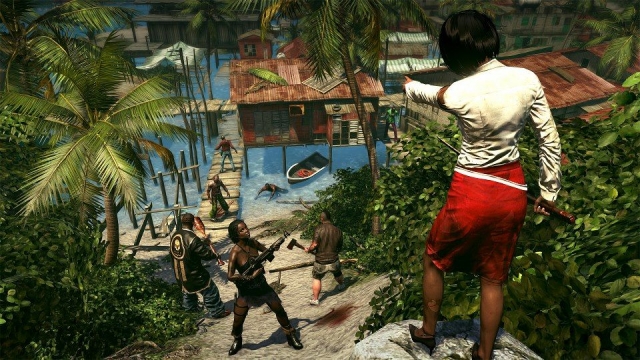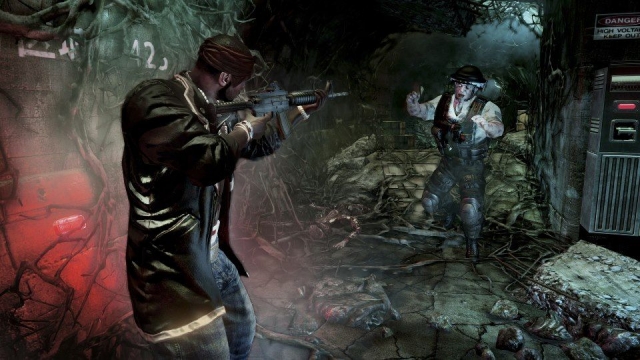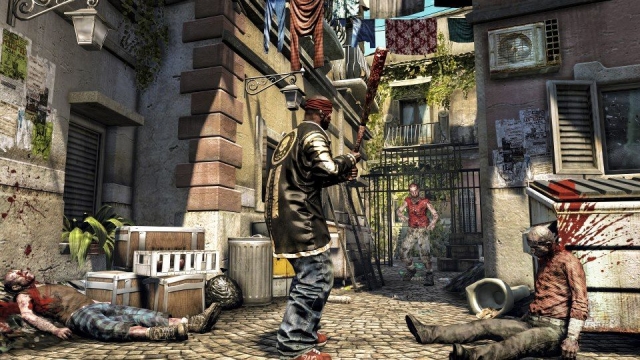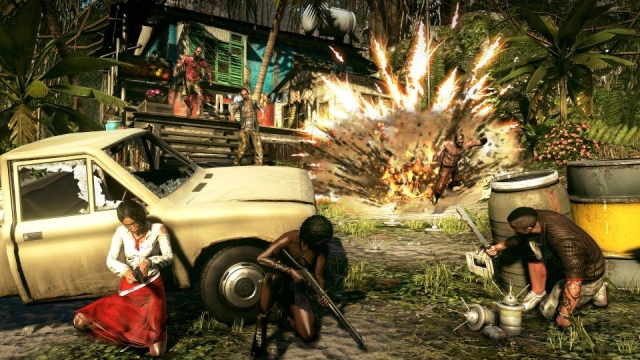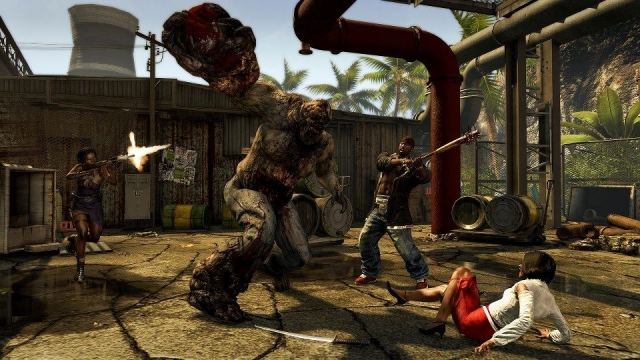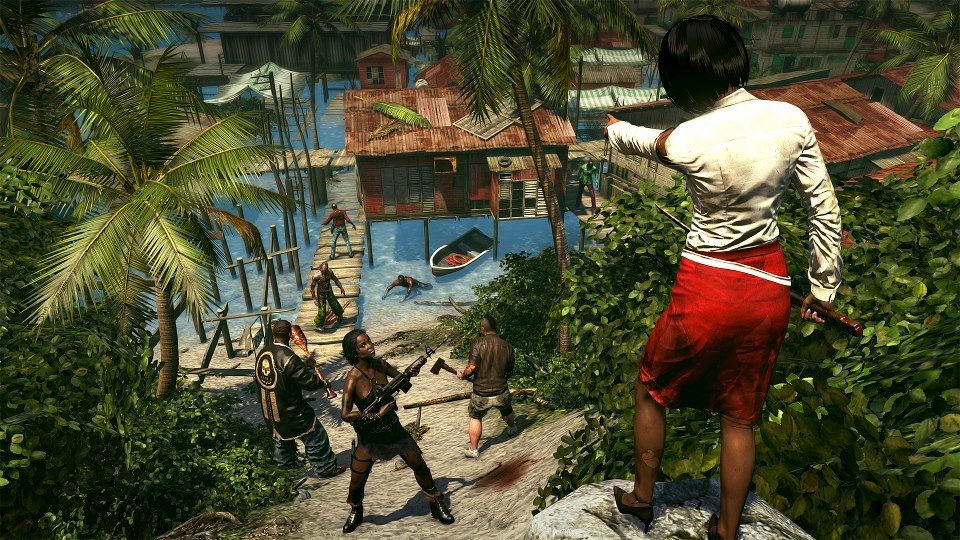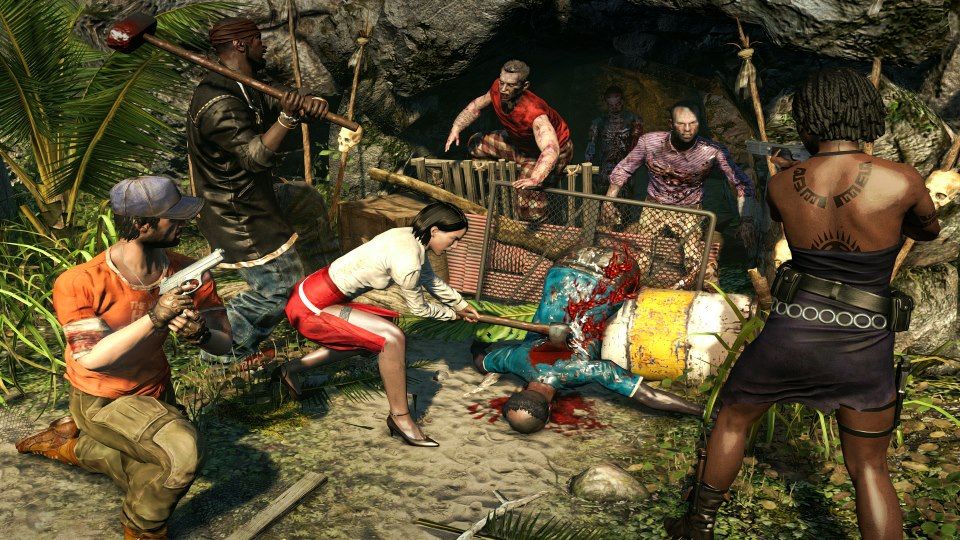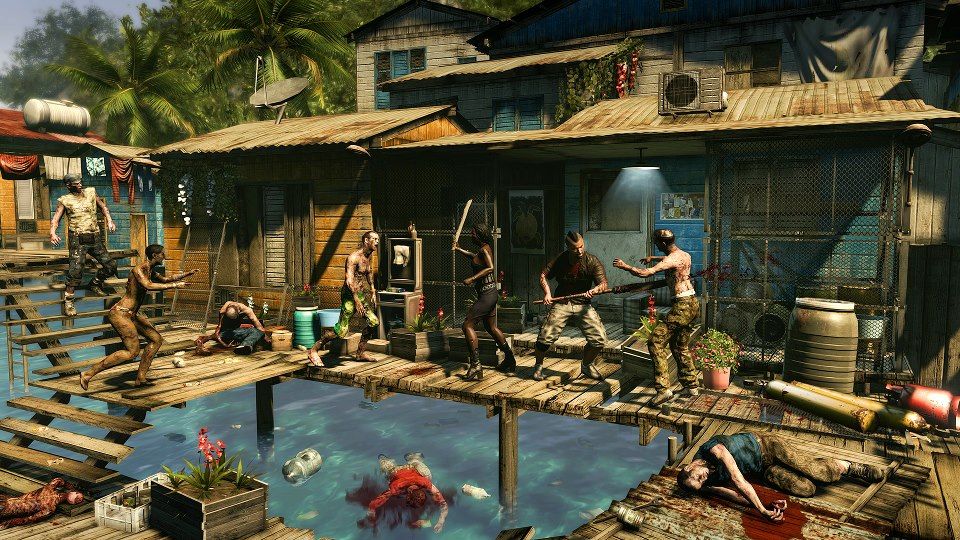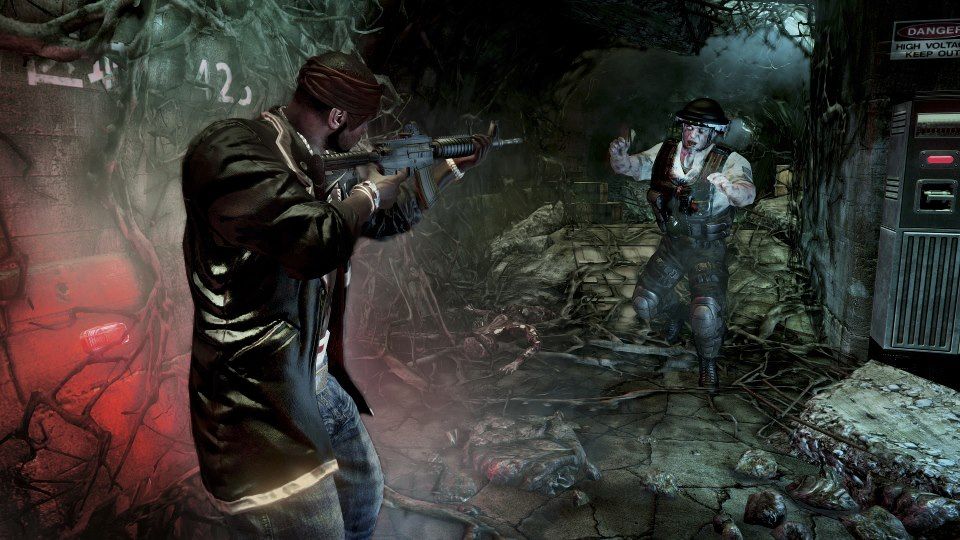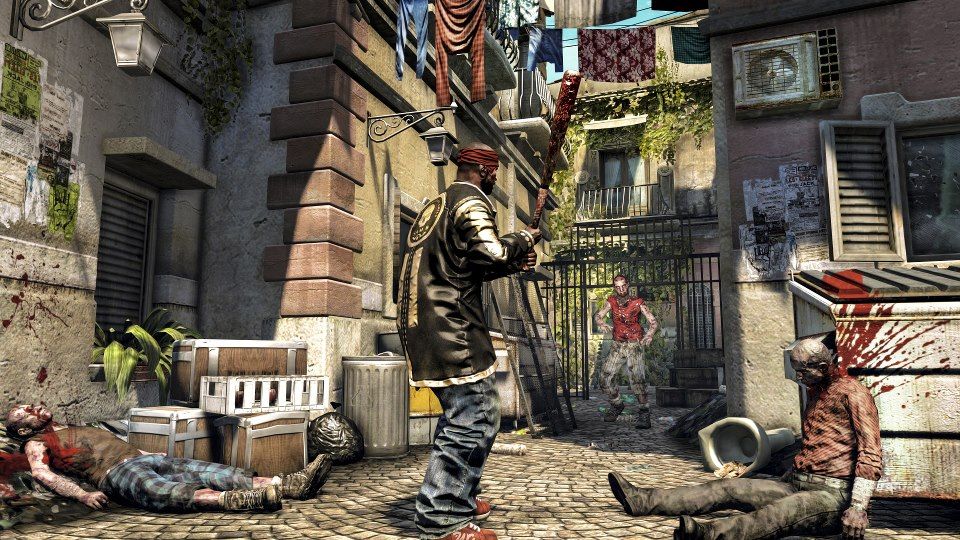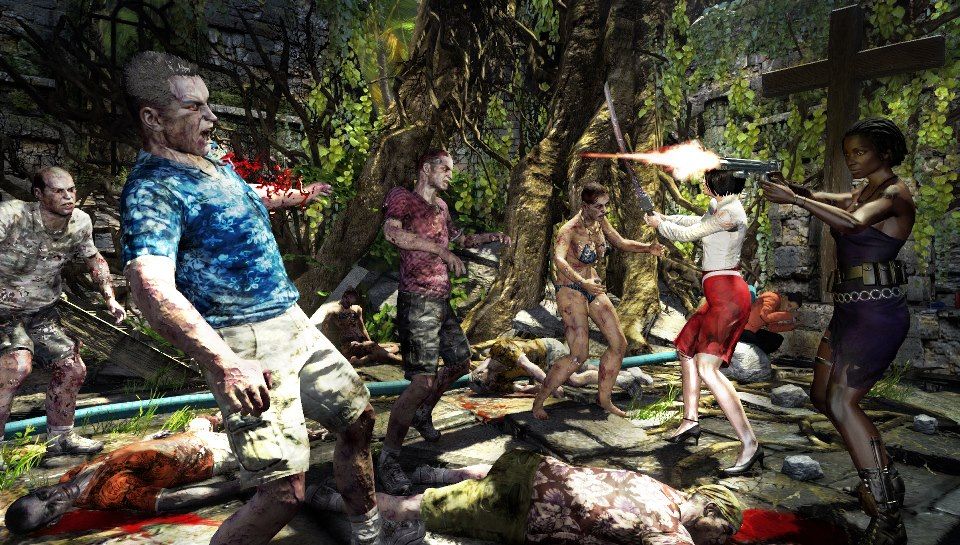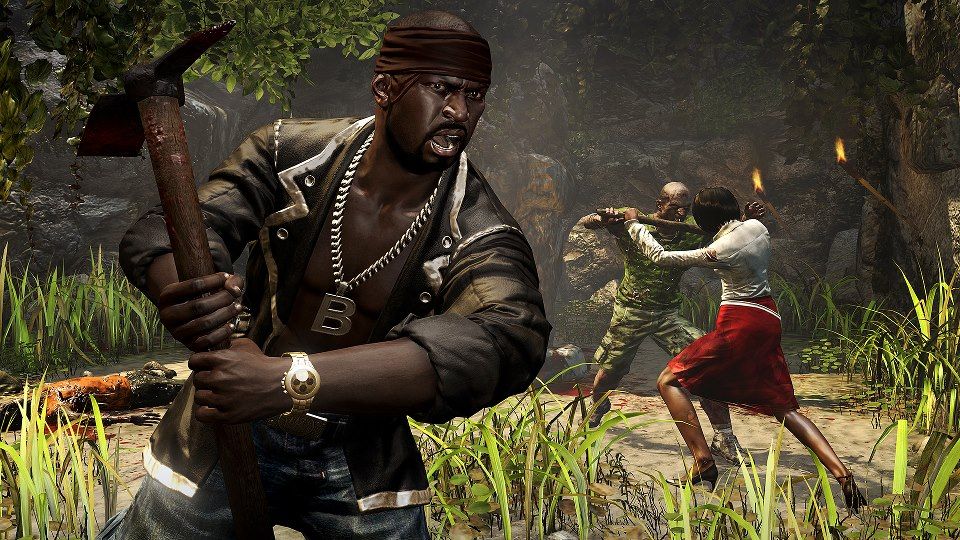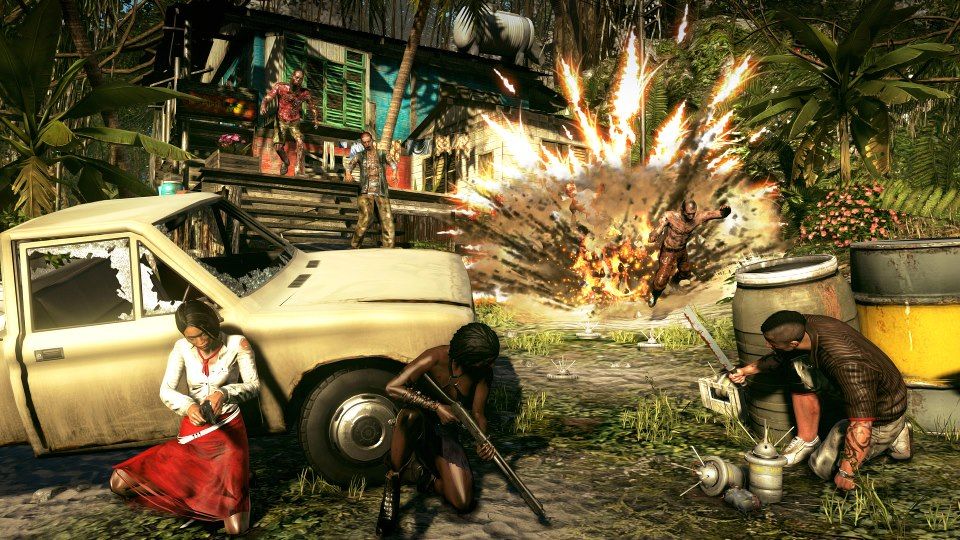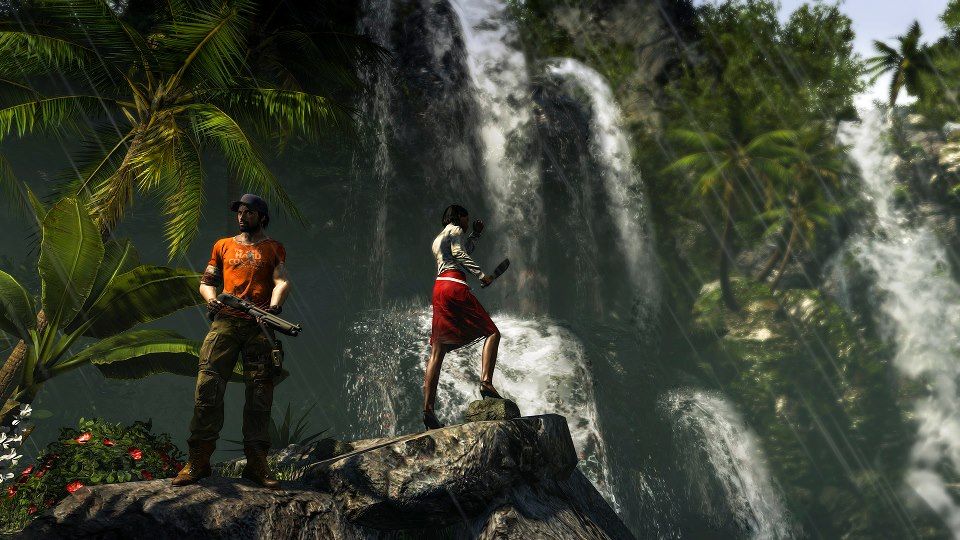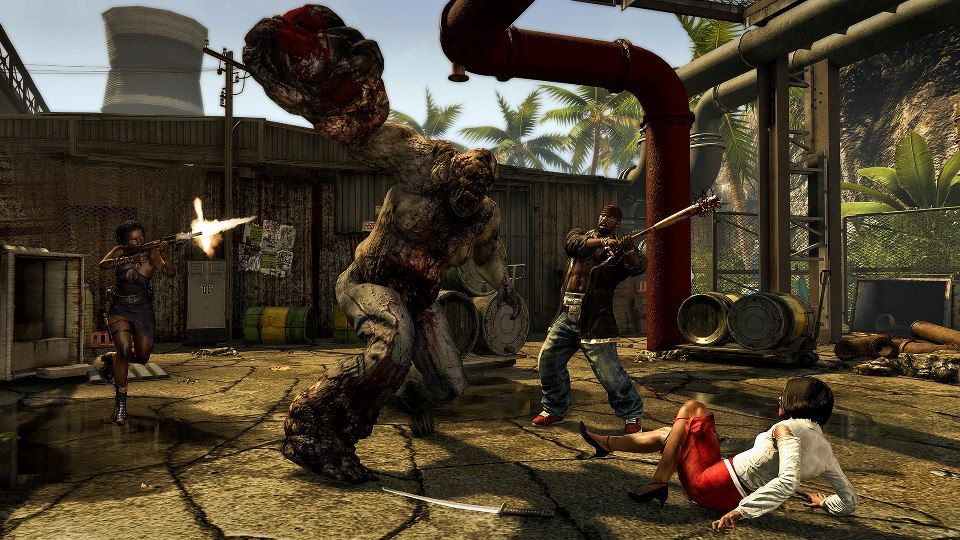Dead Island Riptide Review

The original Dead Island was glitchy and had some significant design flaws, particularly if you were crazy enough to try to play it alone. The idea behind it was absolutely solid–an open-world action game with a lot of RPG and survival horror mixed in, where you leveled up and scavenged parts for weird, all-but-explicitly-magical weaponry while beating zombies with pipes, oars, and eventually your custom-made electric katana–but the implementation was screwed.
That was okay, though, because it was an obvious labor of love by the developers. The story made the rounds well before its release, that Techland had been working on it between higher-profile projects for years, and that they’d spent a long time trying and repeatedly failing to find a publisher. It was basically their garage game, and even if it had a lot of glitches, its netcode wasn’t up to par, the inventory system actively sucked, the writing ranged from okay to goofy, and at least one of the programmers had some unconfronted issues with women, you could still have a lot of fun with the game. Playing alone, it’s a surprisingly tense first-person survival horror game; playing with friends, it’s a goofy open-world brawler where you team up to smash zombie skulls and drive around in indestructible pickup trucks.
Dead Island: Riptide is not a sequel, but is instead an expansion pack, and that might be its real problem.
Some changes have been made, here and there, but it’s still Dead Island all over again with new maps, missions, monsters, and a single new playable character. This includes a lot of the things that players in 2011 would have like to have seen fixed, including the cumbersome inventory system and many of the glitches.
Set about ten minutes after the end of the first game, Riptide begins with the main characters escaping the island of Banoi by helicopter. They’re subsequently arrested by the Australian military and thrown into solitary confinement aboard a naval vessel. There they meet John Morgan, the new playable character and a renegade Australian soldier, right before the zombie virus breaks out aboard the ship.
After escaping that, the characters wash up on the shores of Palanoi, another island on the same chain as Banoi, and wind up with the same problem they had in the first act of the first game: they’re stuck on the relatively undeveloped, touristy part of the island, and any hope they have of rescue is in getting to the military base in Henderson, the single city in Palanoi. Not only has the virus been loose on Palanoi since well before they got there, but the monsoon that caused all the communication issues in Act 1 of Dead Island has flooded out half of Palanoi, including the roads to Henderson. As usual during the zombie apocalypse, you can’t do anything easily and everything is going to go wrong.
I went back and replayed a bit of the first Dead Island, and it’s not fair to say that nothing’s changed at all in Riptide. Characters have a few new moves, such as a charging sweep that knocks zombies down and a jumping one-hit kill you can use on any zombie that’s on a lower elevation than you are, and the combat legitimately does feel a bit more fluid. The UI’s received a slight overhaul, and the addition of four new, passive weapons skills allows characters to gradually become more powerful and adept with whatever your favorite weapons happen to be. Experience rewards are greater, and the repeatable turn-in quests now have rewards that actively scale with your level. It’s still a game that’s very much about the climb, as you start the game very weak and end it as an anti-zombie lawnmower, but the climb is much smoother in Riptide.
They’ve also added several defensive hubs throughout the campaign, where you’re given anywhere from some to no warning whatsoever and must defend a fixed location from several waves of oncoming zombies. You can hedge your bets beforehand by taking up what the game calls “crew quests,” simple fetch missions that require you to scrounge up crafting materials with which your NPC buddies can get better weapons or improve their shop’s inventory. An NPC doesn’t do a lot of damage under any circumstances, but they’re more competent with a flame-spewing skull-headed morningstar than a bent length of pipe.
Out of all of the things that they did get around to changing or adding in Riptide, however, damn near none of them are what a player of the first game would’ve wanted to have seen changed. The engine still runs like it’s getting ready for a hard crash, and anything that involves water effects slows it down to a slideshow. Sometimes the sound cuts out entirely, or firearms simply refuse to hit their target at point-blank range. The game makes heavy use of pre-fabricated environments, to the point where the city of Henderson is full of multiple recurrences of the same hardware store, pharmacy, and workroom, and each of the game’s optional “Dead Zone” mini-challenges is set in the same bungalow, cabin, cavern, laundry room, or warehouse. If your character is ever submerged in water over his or her head, the screen blurs and the only way to clear it seems to be to deliberately drown and respawn; just moving out of the water is nearly impossible for some bizarre reason. There’s still no local co-op, explosives always seem to knock you down from any range, and you still jump like you’re wearing butter shoes.
The inventory is a disorganized mess, where a character can carry a theoretically infinite amount of batteries, duct tape, bottles of water, and other assorted crafting materials, grenades, or throwing knives, but only up to eighteen guns or hand weapons. It’s slightly easier to navigate in Riptide due to the crafting materials being put on their own tab in the menu, and the game now tracks your current inventory when you’re making new items at a workbench so you know how many of the required items you have or need without having to back out and check, but it’s still about twice as cumbersome as it needs to be.
Riptide also doesn’t do a thing to adjust its gameplay for a solo experience, just like the first game. If anything, it’s harder, as individual zombies now do an insanely high amount of damage. The most notorious issue here is with ordinary walkers, the run-of-the-mill shamblers that you encounter almost everywhere, because apparently one of the beautiful bits of local culture on Palanoi is that everyone on the island was a grand master with the throwing knife. If a walker has a weapon, they can throw it with pinpoint accuracy and kill you from full health before you’re close enough to realize they had the weapon in the first place. Even at high levels, players can drop instantly from a zombie they didn’t see that threw a knife at them from up to twenty yards away. The zombies do have a very short “wind-up” animation, but it’s difficult to distinguish from simple zombie shuffling until it’s far too late. Even unarmed, getting caught at close quarters by two or more zombies is going to kill most characters in seconds with no real way for them to fight back, and even with the very minimal death penalty (you lose a little money, in a game that practically vomits money all over you, and are respawned nearby at full health), it’s obnoxious.
I could go on. There are dozens of ways in which Riptide could easily be tweaked to be less frustrating and more fun, but the good news here is that the netcode is considerably more stable than the first game’s was. When you play it alone, you are not encountering the game in anything close to its optimal state. I was able to play it for quite a while without encountering any lag or noticeable stutter, and while the experience could be streamlined–for one thing, the process of accepting quests in multiplayer comes down to one guy accepting it on behalf of the group–it works out reasonably well.
Like the original Dead Island, Riptide plays like an open beta. It simply does not feel like a finished product, and a few more passes to add polish, stability, and balance would’ve been nice before unleashing the game on the world. The good news is that with a few other players along for the ride, that doesn’t matter as much as it should, and you end up with a heavily flawed but nonetheless entertaining experience. There’s no reason at all to play it alone, but if you can round up a consistent crew to run through the game together, it’s well worth the price of admission.
Reviewed By: Thomas Wilde
Publisher: Deep Silver
Rating: 70%
——————————————————————————–
This review is based on a copy of Dead Island Riptide for the Xbox 360 provided by Deep Silver.
 Game Over Online
Game Over Online